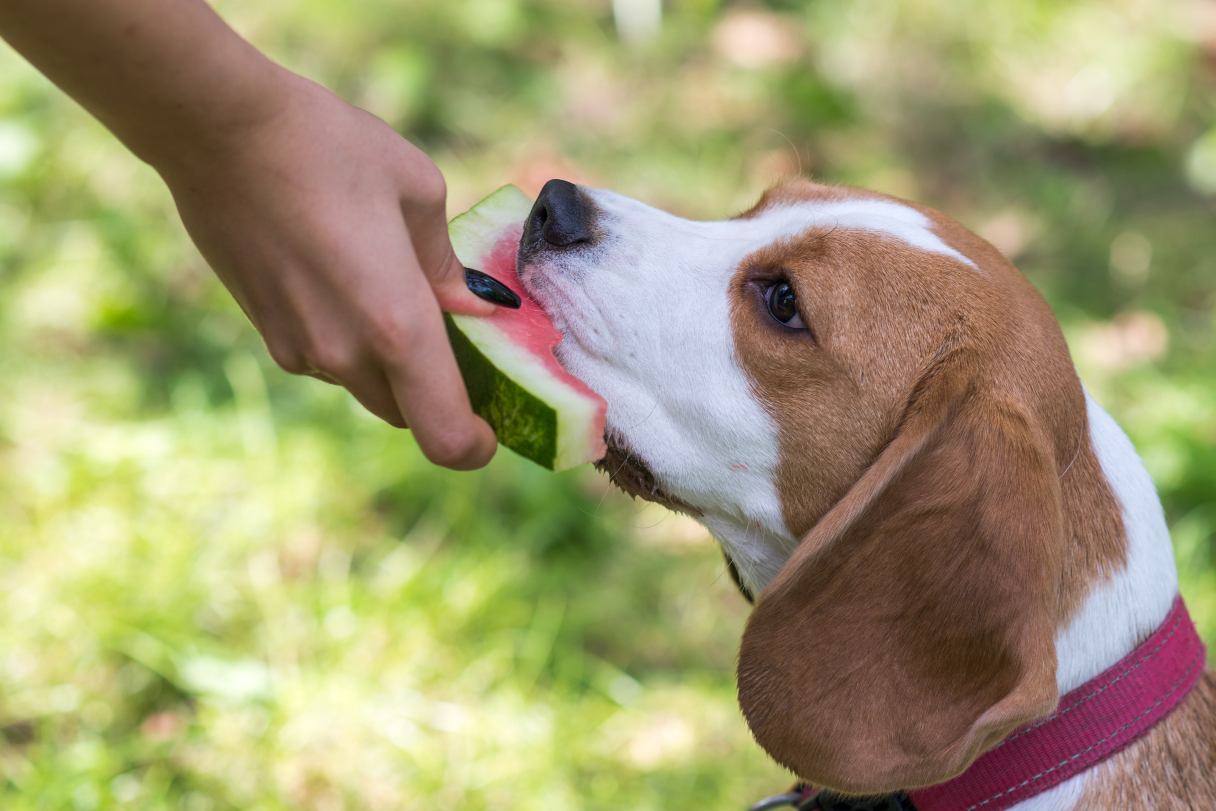Juicy pineapple is a delicious treat for humans, but what about for our pups? Turns out this tropical fruit can be a healthy snack for your dog, too — with a couple of considerations.
Is Pineapple Good for Dogs?
Yes, pineapple is good for dogs and puppies. Eating too much pineapple can upset your dog’s stomach, but in small amounts, the bromeliad is packed with nutrients that are great for your four-legged friend.
When given in moderation, pineapple can be a delicious and nutritious treat for your furry friend. Learn more about the health benefits, safe serving sizes and some fun preparation tips for feeding pineapple to your dog.
Health benefits
Pineapples are rich in healthy nutrients that can benefit your dog. First up are flavonoids and phenolic acids: two antioxidants that fight free radicals, which are unstable atoms that attack cells and can cause chronic disease. Vitamins C and B6 can help boost your pup’s immune system, and manganese is an essential mineral that helps keep many systems in the body running smoothly.
And don't forget about bromelain, an enzyme that not only helps break down plaque but is also an anti-inflammatory that can help reduce swelling and promote wound healing. Bromelain can also promote healthy digestion by helping break down foods.
If your dog has any medical concerns — like diabetes, for example — be sure to check with your veterinarian before feeding them any pineapple.
Dental benefits
The dental effects of pineapples for dogs are varied. While the acidity of pineapples can contribute to tooth decay, the bromelain enzyme that is present can help break down plaque. Offering your dog plenty of fresh water after snacking on a pineapple can help flush and clean your dog’s teeth.
How Much Pineapple Can Dogs Eat?
It’s not surprising that the sweet pineapple has a high sugar content, so check with your veterinarian first to make sure it’s OK for your dog to eat, especially if your pup has a condition like diabetes. Regardless, you should give your dog only a small amount of pineapple because of the high sugar found in the fruit.
Now for a little math: It’s recommended that healthy treats make up no more than 10% of your dog’s diet. One cup of diced pineapple contains around 80 calories. That means a small dog can have one piece occasionally, while larger dogs can enjoy two to three pieces of pineapple.
What Happens if a Dog Eats Too Much Pineapple?
If your dog indulges in too much of this fruit — or sneaks a mouthful of fruit salad — they may experience digestive problems like vomiting or diarrhea due to the sugar and fiber content. Besides sugar, pineapples also have a higher acid content than other fruits and foods, so your dog may experience stomach irritation if they eat more than a very small amount.
Are Dogs Allergic to Pineapple?
Pineapple allergies are not common, but give your pup just a small taste the first time and then monitor for symptoms of digestive upset (diarrhea) or an allergic reaction (skin irritations). If you notice anything concerning, stop giving your dog pineapple and contact your veterinarian for advice.
How to Prepare Pineapple for Dogs
Pineapple is best served fresh (raw). Remove the skin and hard inner core, and cut the fruit into small pieces to reduce the chance of choking.
Other fun ways to feed your dog pineapple include:
-
Blending the fruit to make a puree (just don’t go overboard — offer only a small spoonful of the sweet treat to your pup)
-
Blending the fruit with plain Greek yogurt and freezing in an ice cube tray
What to avoid:
-
Freeze-dried pineapples — while not dangerous, they are much more concentrated and may have a higher sugar content
-
Canned pineapple or juice, which usually contain syrups that are very high in sugar or other sweeteners
Don’t Feed a Dog Pineapple Plants, Leaves, Skin or Inner Core
The pineapple plant and leaves, as well as the spiky skin and inner core, can cause gastric irritation or even intestinal obstruction, which can become a serious condition quickly. If your dog eats anything other than the juicy flesh of the fruit, call your veterinarian immediately.
CareCredit Credit Card Financing for Dogs
Taking good care of your pet's well-being from nose to tail is essential. Make sure to stay up to date on their regular checkups at the vet to help keep your pet happy and healthy for a lifetime of love. You can use your CareCredit credit card for pet care throughout the year for routine veterinary services as well as emergencies and surgeries.* Use our Acceptance Locator to find a veterinarian near you that accepts CareCredit.
CareCredit is there for you and your pet every step of the way. Continue your wellness journey by downloading the CareCredit Mobile App to manage your account, find a provider on the go and easily access the Well U blog for more great articles, podcasts and videos.
In addition to pet care, you can also use your CareCredit credit card for dentistry, cosmetic, vision, hearing, health systems, dermatology, pharmacy purchases, spa treatments and so much more within the CareCredit network. How will you invest in your health and wellness next?
Author Bio
Dr. Kathy Wiederkehr (Wentworth) has been practicing veterinary medicine at pet care facilities in California since 2001. Most recently, she served as medical director of the VCA PetPoint Medical Center and Resort in Irvine. She is a graduate of the University of Pennsylvania School of Veterinary Medicine and became board-certified as a diplomate in Canine and Feline Practice by the American Board of Veterinary Practitioners in 2010.








